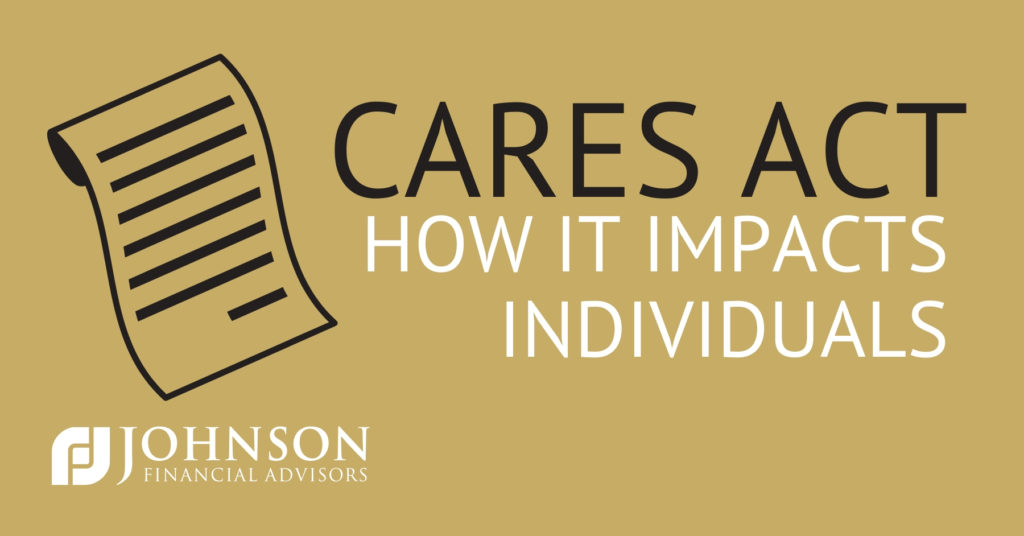
How CARES Act Affects Individuals
President Trump signed the Coronavirus Aid, Relief and Economic Security (CARES) Act into law March 27. In addition to hundreds of billions of dollars in funding to businesses, healthcare and state and local governments, the CARES Act includes these measures directly impacting individuals:
Taxes and payments: Individual tax filers who had an adjusted gross income up to $75,000 and married couples who filed joint returns with income up to $150,000 will automatically receive $1,200 and $2,400 checks respectively. Individuals and couples whose income was over those limits but up to $99,000 and $198,000 respectively will receive reduced amounts. Parents will receive $500 for each qualifying child. Individuals now have until July 15 to file their 2019 federal income taxes. Taxpayers can claim up to a $300 deduction for charitable donations made in 2020 – even if they don’t itemize.
Retirement accounts: Required Minimum Distributions from IRAs and 401(k)s are suspended through 2020. 401(k) loan limits are increased from $50,000 to $100,000. Penalties are waived on early withdrawals from pretax retirement plans up to $100,000 for coronavirus-related needs in 2020. Such withdrawals will be taxed, but taxes will be spread over three years. Alternatively, individuals may replace the funds within three years.
Student loans: Federal student loan and interest payments are automatically deferred until September 30. For individuals who qualify for student loan forgiveness, these skipped payments will count toward their 120 required payments.
Unemployment: Eligibility for unemployment insurance is expanded to include self-employed contractors and gig workers. Unemployment filers will receive an extra $600 a week (in addition to their states’ unemployment benefits) for up to four months. It also adds 13 weeks of unemployment benefits.
Homeowners and renters: Holders of federally backed mortgages can request forbearance for up to 180 days for virus-related hardships, with a second extension. Landlords with mortgages backed by the U.S. Department of Housing and Urban Development, Fannie Mae, Freddie Mac and other federal entities cannot pursue eviction of tenants for 120 days following the Act’s enactment.
If you have questions on how the CARES Act affects you personally or other concerns about our current situation, don’t hesitate to call.
Johnson Financial Advisors and its financial service professionals do not provide tax advice
